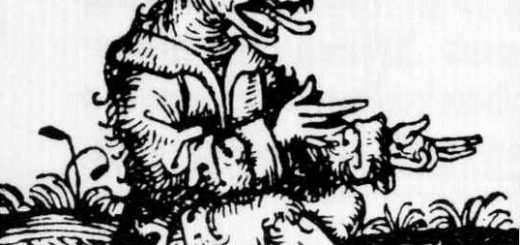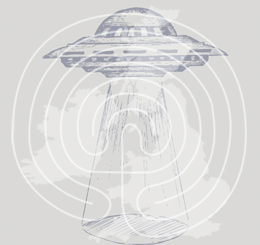Mr William’s Experience (1812), Scorrier House
On 11th May 1812, Spencer Perceval (Born 1 November 1762) was shot and killed by John Bellingham, making him the only British Prime Minister to be assassinated in office. There is a story that this assassination was foreseen in a dream by Mr Williams of Scorrier House in Redruth, Cornwall.
The following account of this event is taken from ‘The Haunted Homes and Family Traditions of Great Britain’ by John Ingram (1897), though it refers to Perceval as the Chancellor of the Exchequer, eventhough he had been Prime Minister since 1809. He had been Chancellor of the Exchequer between 1807 and 1809. ‘It seems impossible to explain away the well vouched for facts of the following marvellous historic incident by any theory of coincidence. The points of identity between the tragedy enacted afar off and the dreams in Cornwall are so many, that the Calculus of Probabilities would scarcely include their agreement within the rules of the Possible. And if not by coincidence, by what law can the mystery be analysed? It is not our task, however, to attempt to solve the problem, but to tell the story, basing our narrative upon the account which was given in the Times newspaper of August 16th, 1868. It was on the night of the 11th of May 1812, according to the version of the story told by the Times during the life-time of Mr. Williams, that that gentleman, then residing at Scorrier House, near Redruth, in Cornwall, awoke his wife, and in great agitation informed her that he had dreamed he was in the lobby of the House of Commons, and had seen a man shoot with a pistol a gentleman who had just entered the lobby, and who was said to be the Chancellor. Mrs. Williams very naturally replied that it was only a dream and endeavoured to calm her husband by recommending him to go to sleep again. He did fall asleep again, but shortly afterwards awoke his wife and told her that he had had the same dream a second time. Upon this, Mrs. Williams suggested that he had been so disturbed by his former dream that it bad probably dwelt on his mind, and, therefore, begged him to try and compose himself and go to sleep, which he did. Once more, for the third time, the vision was repeated ; whereupon, not- withstanding his wife’s entreaties that he would be quiet, and try to forget the affair, Mr. Williams arose and dressed himself, it then being between one and two o’clock in the morning.
At breakfast Mr. Williams’s sole subject of conversation was the vivid dreams by which his night’s rest had been disturbed. In the afternoon he had occasion to go to Falmouth, where he gave every acquaintance he met particulars of his strange visions.
The following day Mr. Tucker, of Trematon Castle accompanied by his wife, a daughter of Mr. Williams, visited at Scorrier House. No sooner were the family greetings over than Mr. Williams related his wonderful dream to the new arrivals; as Mrs. Williams laughingly remarked to her daughter, her father would not even allow Mr. Tucker to be seated before he told him of his nocturnal visitation. Upon hearing his father-in-law’s statement, Mr. Tucker observed that it might do very well in a dream to have the Chancellor in the lobby of the House of Commons, but that he would never be found there in reality.
Subsequently, Mr. Tucker inquired what sort of a man the person shot appeared to be; and when Mr. Williams described him with great minuteness, he remarked, “Your description is not at all that of the Chancellor, but is certainly exactly that of Mr. Perceval, the Chancellor of the Exchequer; and, although he has been to me the greatest enemy I ever met with, for a supposed cause which had no foundation in truth” (or words to that effect), “I should be exceedingly sorry, indeed, to hear of his being assassinated, or of any injury of the kind happening to him. “Mr. Tucker then asked Mr. Williams if he had ever seen Mr. Perceval, and was told that he never had seen him, nor had ever even written to him, either on public or private matters; in short, that he had never had anything to do with him, nor had he ever been in the lobby of the House of Commons in his life.
In the midst of this conversation, and whilst the two gentlemen were still standing, they heard a horse gallop up to the door of the house, and immediately afterwards Mr. Michael Williams, of Treviner, son of Mr. Williams, of S comer, entered the room, and said that he had galloped out from Truro, a distance of seven miles, having seen a gentleman there who had come by that evening’s mail from London, who said that he was in the lobby of the House of Commons on the evening of the 11th, when a man called J Bellingham had shot Mr. Perceval, the Chancellor of the Exchequer; and that, as it might occasion some great ministerial changes, and might affect Mr. Tucker’s political friends, he had come out as fast as he could to make him acquainted with it, having heard at Truro that he had passed through that place in the afternoon on his way to Scorrier House.
After the astonishment which this unexpected fulfilment of the dream caused had a little subsided, Mr. Williams most particularly described the appearance and dress of the man whom he beheld in his dreams fire the pistol, as he had previously described Mr. Perceval.
Some six weeks after the fatal affair, Mr. Williams, having business in London, availed himself of the opportunity to go, accompanied by a friend, to the House of Commons, where, as has already been stated, he had never been before. As soon as he came to the steps at the entrance of the lobby, he stopped and said, “This place is as distinctly within my recollection in my dream as any room in my house “; and he repeated the observation when he entered the lobby. He then pointed out the exact spot where Bellingham stood when he fired, and which Mr. Perceval had reached when he was struck by the ball, and where and how he fell. The dress and appearance of both Mr. Perceval and his assassin, Bellingham, are declared to have agreed exactly, even to the most minute particular, with the descriptions given by Mr. Williams.
The Times, when furnishing its readers with this wonderful story, drew attention to the fact that Mr. Williams was still alive, and would, therefore, have denied any inaccuracy in their account, whilst many of the witnesses to whom he had made known the particular of his dreams directly after he had had them were also living. Moreover, added the editor, he had received the whole statement from a correspondent of unquestionable veracity.
Scorrier House itself dates from 1778 – 1780 and was built by the mining tycoon John Williams (Born 1753 – Died 1841), whose family still reside there.





Recent Comments